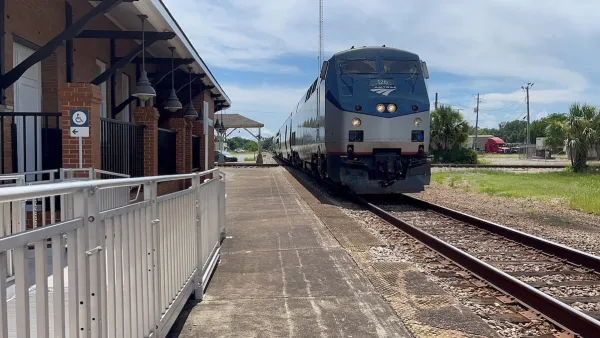Resilience science has typically been applied to ecosystems. But now, scientists are starting to look at how it relates to cities.
The theory goes that ecosystems (or places) don't respond to changes in a linear fashion, but rather they are in a constant state of flux.
"The concept of resilience upends old ideas about 'sustainability': Instead of embracing stasis, resilience emphasizes volatility, flexibility, and de-centralization. Change, from a resilience perspective, has the potential to create opportunity for development, novelty, and innovation. As Holling himself once put it, there is 'no sacred balance' in nature. 'That is a very dangerous idea.'
Over the past decade, resilience science has expanded beyond the founding group of ecologists to include economists, political scientists, mathematicians, social scientists, and archaeologists. And they have made remarkable progress in studying how habitats-including coral reefs, lakes, wetlands, forests, and irrigation systems, among others-absorb disturbance while continuing to function.
New Orleans, however, presents an interesting example to resilience scientists. If a lake can shift from clear to murky, could a city shift to a dramatically different stable state too?"
FULL STORY: Urban Resilience

Maui's Vacation Rental Debate Turns Ugly
Verbal attacks, misinformation campaigns and fistfights plague a high-stakes debate to convert thousands of vacation rentals into long-term housing.

Planetizen Federal Action Tracker
A weekly monitor of how Trump’s orders and actions are impacting planners and planning in America.

In Urban Planning, AI Prompting Could be the New Design Thinking
Creativity has long been key to great urban design. What if we see AI as our new creative partner?

King County Supportive Housing Program Offers Hope for Unhoused Residents
The county is taking a ‘Housing First’ approach that prioritizes getting people into housing, then offering wraparound supportive services.

Researchers Use AI to Get Clearer Picture of US Housing
Analysts are using artificial intelligence to supercharge their research by allowing them to comb through data faster. Though these AI tools can be error prone, they save time and housing researchers are optimistic about the future.

Making Shared Micromobility More Inclusive
Cities and shared mobility system operators can do more to include people with disabilities in planning and operations, per a new report.
Urban Design for Planners 1: Software Tools
This six-course series explores essential urban design concepts using open source software and equips planners with the tools they need to participate fully in the urban design process.
Planning for Universal Design
Learn the tools for implementing Universal Design in planning regulations.
planning NEXT
Appalachian Highlands Housing Partners
Mpact (founded as Rail~Volution)
City of Camden Redevelopment Agency
City of Astoria
City of Portland
City of Laramie



























